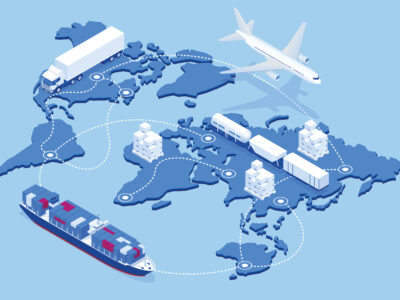RFID (Radio Frequency Identification) is the hot new technology businesses are now pooling their resources into. Every so often, a technological leap occurs which revolutionises the way business and industry operates. New procedures and methods arise, which results in an ‘adapt or die’ climate amongst those even vaguely affiliated with the technology sector, both consumers and producers. The main reason for the surge in interest in RFID technology is that is offers greater logistical control, or ‘traceability’ (Chonwatpol and Sharda, 2013). For example, tighter control within the manufacturing line is accessible through the use of RFID technology, achieved by creating ‘transparency’ throughout the line of production. Manufacturers can see exactly how much raw material is being converted into a work-in-progress, and then finally into the finished product. (Chonwatpol and Sharda, 2013). Essentially, this revolutionises the role of workers within the RFID initiated manufacturing industry. The role of the supervisor is altered to be more productive, as they have direct access to information regarding stock, progress and location. They can focus their efforts on managing the output of products and increasing yield, rather than ensuring the productivity of employees, creating an all-round, more efficient process. This is made possible by the comprehensive data tracking that RFID enables. For those still uncertain of the potential of RFID tagging, Apte et al. have coined a noteworthy, contemporary comparison. They suggest that RFID could be as revolutionary to operations as the introduction of the ATM was to the banking industry (Apte et al., 2010).
For added clarity, the real world usefulness and deployment of RFID technology from companies like www.aidc-solutions.co.uk
will be examined. For the ease of the reader, these will be split into two categories, ‘security’ and ‘efficiency’.
Security
The uses of RFID technology in the realms of security are wide ranging, such as clamping down on stock theft. This is achieved by RFID tagging products, enabling an alarm to be sounded should the product be removed without legitimate authorisation. This may include authorisation given to an employee by a superior, or more simply, the purchase of an item. In a more extreme scenario, greater security is granted in the task of managing prisoners. RFID tagging enables location tracking and can even restrict the movement of prisoners, making the movement into unauthorised areas more difficult. The US army also famously uses RFID tagging to increase the security of military operations, imposing greater control and tracking of shipped supplies.
The security benefits are well documented and fairly commonsensical – the improvements RFID technologies bring is clear to see. However, the everyday consumer, the supermarket shopper, the credit card user, may think the surge in interest of RFID products may not affect them. Chances are it already has, without them realising, or will do in the very near future.
Efficiency
Within the UK there has been a huge emphasis placed upon ‘contactless payment’ systems, with banks who offer the technology, such as Barclays, pumping millions into the advertisement of contactless technology. However, what consumers do not realise, is that contactless payment is fuelled by RFID systems. Credit card industry leaders, Visa and Mastercard, have coined their own variants and branding of RFID technology (titled PayWave and Paypass, respectively), which they boast significantly reduces the time needed to complete a financial transaction. In addition to this, research suggests that consumers using contactless payments are likely to spend more, perhaps due to the efficiency in which payment is completed. The event of a supermarket with full RFID optimisation is also quite realistic. A trial store has been established, which thanks to the use of RFID tagged products, creates a fast and concise shopping experience. Information such as stock levels and expiry date can be stored electronically and shopping totals can be added up at the checkout in an instant. The warehousing and storage of stock is also being revolutionised by RFID technology, with companies such as AIDC Solutions offering full logistical RFID solutions. A good case to be made for the modernisation towards RFID systems can be seen within the instance of American Apparel, who after changing to RFID from a paper-based system, cut down on squandered staff hours, due to the reduction in human error, thanks to the new Radio Frequency Identification systems.
However, greater efficiency is not just related to commerce. RFID tags have been fitted in the steps of escalators in various London Underground tube stations in order to improve and streamline maintenance. Various information such as the age of the step and its service date are included within the tag, allowing a more precise and cost effective maintenance strategy to be developed.
These examples have barely scratched the surface of the possibilities of RFID tagging and only cover some of the most prominent examples. In light of this, one observation is clear and apparent across the board of all the cases given within this example. RFID technology contains the potential to optimise data collection, creating a new, seamless and transparent framework for industry and commerce to operate within.












Comments